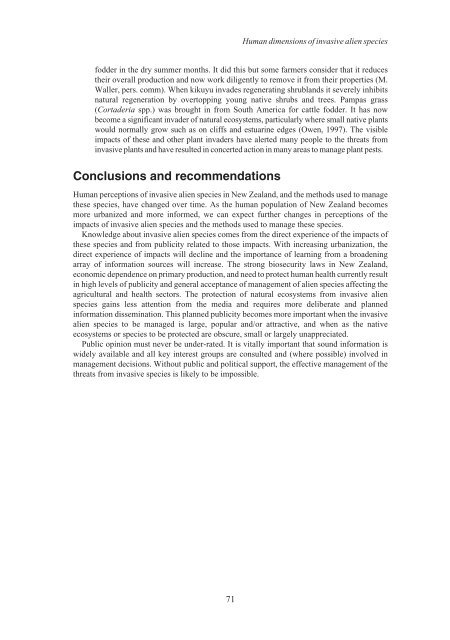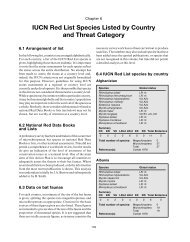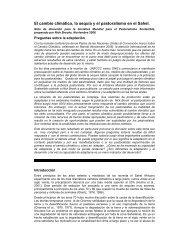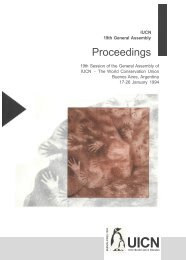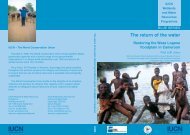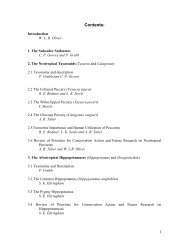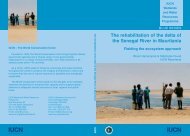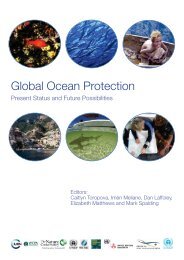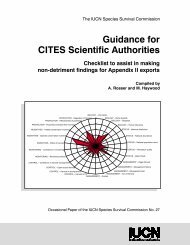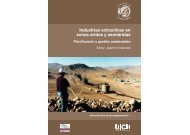Alien Species.vp - IUCN
Alien Species.vp - IUCN
Alien Species.vp - IUCN
Create successful ePaper yourself
Turn your PDF publications into a flip-book with our unique Google optimized e-Paper software.
fodder in the dry summer months. It did this but some farmers consider that it reduces<br />
their overall production and now work diligently to remove it from their properties (M.<br />
Waller, pers. comm). When kikuyu invades regenerating shrublands it severely inhibits<br />
natural regeneration by overtopping young native shrubs and trees. Pampas grass<br />
(Cortaderia spp.) was brought in from South America for cattle fodder. It has now<br />
become a significant invader of natural ecosystems, particularly where small native plants<br />
would normally grow such as on cliffs and estuarine edges (Owen, 1997). The visible<br />
impacts of these and other plant invaders have alerted many people to the threats from<br />
invasive plants and have resulted in concerted action in many areas to manage plant pests.<br />
Conclusions and recommendations<br />
Human perceptions of invasive alien species in New Zealand, and the methods used to manage<br />
these species, have changed over time. As the human population of New Zealand becomes<br />
more urbanized and more informed, we can expect further changes in perceptions of the<br />
impacts of invasive alien species and the methods used to manage these species.<br />
Knowledge about invasive alien species comes from the direct experience of the impacts of<br />
these species and from publicity related to those impacts. With increasing urbanization, the<br />
direct experience of impacts will decline and the importance of learning from a broadening<br />
array of information sources will increase. The strong biosecurity laws in New Zealand,<br />
economic dependence on primary production, and need to protect human health currently result<br />
in high levels of publicity and general acceptance of management of alien species affecting the<br />
agricultural and health sectors. The protection of natural ecosystems from invasive alien<br />
species gains less attention from the media and requires more deliberate and planned<br />
information dissemination. This planned publicity becomes more important when the invasive<br />
alien species to be managed is large, popular and/or attractive, and when as the native<br />
ecosystems or species to be protected are obscure, small or largely unappreciated.<br />
Public opinion must never be under-rated. It is vitally important that sound information is<br />
widely available and all key interest groups are consulted and (where possible) involved in<br />
management decisions. Without public and political support, the effective management of the<br />
threats from invasive species is likely to be impossible.<br />
71<br />
Human dimensions of invasive alien species


